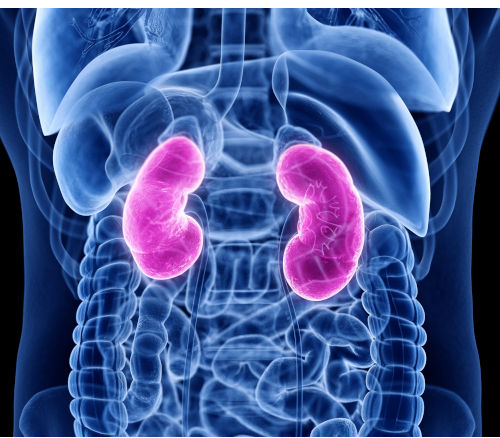Author: Laura Cowen
medwireNews: Individuals who discontinue maintenance immunosuppressive therapy for proliferative lupus nephritis after 2–3 years have a higher rate of relapse and severe flares than those who continue with treatment, suggest data from the WIN-Lupus trial.
Noemie Jourde-Chiche (Aix-Marseille Université, France) and co-authors report in the Annals of the Rheumatic Diseases that the 2-year relapse rate was 27.3% in 44 patients who were randomly assigned to taper and discontinue maintenance immunosuppressive therapy with azathioprine or mycophenolate mofetil over a 3-month period after 2‒3 years of treatment.
By comparison, the relapse rate at 2 years was 12.5% among the 40 patients who continued immunosuppressive therapy, with the between-group difference of 14.8 percentage points not meeting the prespecified criteria for noninferiority.
At the time of randomization, all participants had been in complete or partial renal remission for at least 1 year and were told to continue with hydroxychloroquine. They were also allowed to take low-dose corticosteroids (prednisone ≤10 mg/day) when necessary.
Further analysis showed that although noninferiority of immunosuppressive therapy discontinuation could not be demonstrated, continuing treatment was not significantly better than discontinuation in terms of proliferative lupus nephritis relapse.
However, the researchers note that they were unable to recruit the planned 200 participants, therefore the trial is “underpowered, and superiority of treatment continuation could have been demonstrated with more patients.”
The team also found that severe systemic lupus erythematosus flares (renal or extrarenal) were significantly more common in the patients who discontinued treatment relative to those who continued, occurring in 31.8% and 12.5%, respectively.
Conversely, there was no significant difference between the two groups in adverse event rates or corticosteroid use, but health-related costs were lower in the patients who discontinued treatment.
Jourde-Chiche et al say that although they were unable to show that discontinuing immunosuppressive therapy was not inferior to continuing treatment, the majority of patients who discontinued had not relapsed at 2 years after discontinuation.
Therefore, “[r]ather than generalising long-term continuation of maintenance [immunosuppressive therapy] to prevent relapses, the challenge consists of identifying patients who can safely be weaned from [immunosuppressive therapy],” they write.
In the current analysis, the researchers identified a number of baseline factors that were associated with lupus nephritis relapse in univariate analyses. These included antiphospholipid syndrome, and higher urinary protein/creatinine ratio, SLEDAI, and estimated glomerular filtration rate, as well as lower complement component 3, lower serum albumin and hemoglobin levels, and lower leucocyte, lymphocyte, and eosinophil counts.
medwireNews is an independent medical news service provided by Springer Healthcare Ltd. © 2022 Springer Healthcare Ltd, part of the Springer Nature Group
Image Credits: © SciePro / stock.adobe.com



